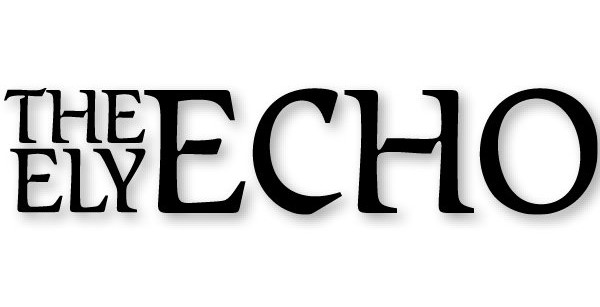Once “deeply uncomfortable” about mining, Julie Lucas now serves as an advocate for the industry and a supporter for proposed copper-nickel projects in northeastern Minnesota.
Earlier this week, Lucas was in Ely and challenged a skeptical audience to view mining through a new lens, citing the demand for products that result from mining and posing rhetorical questions about how minerals may be produced elsewhere.
“The mining industry always gets accused of greenwashing,” Lucas told a packed house at the Grand Ely Lodge at this week’s Tuesday Group gathering. “But we have to make sure we’re not greenwashing other stuff too and not feeling good about some things we shouldn’t feel good about. We should know where the solar panels going up are constructed. We should know if solar panels are made with slave labor. We should know where the metals come from for our wind turbines.”
Lucas, executive director of Mining Minnesota and formerly Director of Water Resources for Twin Metals Minnesota, then had a terse exchange with Becky Rom, the Ely native and longtime wilderness advocate who has led a national campaign against the Twin Metals project.
Rom took issue with several of Lucas’s assertions, including one that “the science is not settled” on Twin Metals, by pointing to actions taken by the U.S. Forest Service to block the Twin Metals initiative.
“For the last nine years, the Forest Service has said no mining in this place, because it’s too risky and once the Boundary Waters is polluted you can’t fix it, you can’t mitigate it,” said Rom. “For us it’s more than water. This is one of the most precious landscapes in the country. It’s the heart of our regional economy.”
Rom pointed to public hearings and comment periods and said “there’s no compelling reason” to allow the Twin Metals project.
While Rom had no specific question, Lucas countered “I’m going to respond regardless” and said she would “respectfully disagree” with Rom’s position.
“My apologies to Twin (Metals) but the work we did was not ever looked at,” said Lucas. “When my water team took years of data and made a good faith effort and we were not granted the opportunity to share that data. You never talked to me. You never met with me. It broke my heart as a scientist to see people were assuming harm without ever looking at data that we created in good faith. I want folks to understand it’s not settled science.
The exchange came after a roughly 40-minute presentation entitled “Minnesota Mining, Meaning, and Responsibility: Facing the Realities Beneath Our Feet.”
Lucas outlined her science background, including degrees in biochemistry, molecular biology and water resources science, and described her own earlier unease with mining.
“I very much expected to be working against mining with that degree, but then I moved to the Iron Range,” she said.
Lucas said she once thought “these holes in the ground were just there. All I saw was what I thought was land destruction and movement of earth.”
Her position evolved after becoming more familiar not only with mining but the products that result from it.
“When I walk through a parking lot all I see now are taconite pellets shaped like cars,” said Lucas, noting that 85 percent of the nation’s domestic steel production comes from the Iron Range. “I never realized they were actually for a use. Mining wasn’t being done to us, it was being done for us.”
For Minnesota, its resource is in some ways a blessing and curse, Lucas inferred.
“In New York City you see these massive skyscrapers built with metals that come from somewhere,” said Lucas. “Powered with copper that came from multiple places around the earth. In New York they just live, having the resources here has forced us to have hard conversations. We are really not comfortable asking where our stuff comes from.”
Pointing to both the resources that have powered the Range’s mining history and the ones that could lead to copper-nickel mining Lucas said, “We have all those things, which is good, for the simple fact we are having to have these conversations.”
“That fear is fair,” said Lucas. “We should be asking how we mine. We should be asking who will do the mining.”
Lucas pointed to consumer demand, global demand and a commitment to clean energy as reasons to advocate for copper-nickel mining.
She said that conversations are needed about “how much copper has to be mined to maintain the status quo, and it’s a lot.”
That demand only increases when considering the electrification of other nations.
“And Americans are not going to want a hiccup in their electricity,” said Lucas. “You saw what happened during Covid. When there was scarcity, people lost their minds.”
Lucas challenged the audience to consider their own consumption.
“I drive a car,” she said. “We are in this building today because of mining, because running behind all of those walls is copper... We are driving demand.”
Pointing to the many agencies and regulations linked to mining, Lucas added “we have regulations because of things that were done. Safety regulations are written in the blood of workers. Environmental regulations are written in the blood of the community.”
“When people bring their concerns to me about mining, I’m glad,” said Lucas. “Every cut to the earth is a cut. We want people to question. That’s a healthy society.”
But Lucas added that “when we look at a just energy policy, who are we asking to do the mining?”
“In that one year (with Twin Metals) nobody ever asked me about water. All I wanted to do was explain. Nobody cared. We had a chance to educate and there are folks from Twin here today who are willing to educate.”


